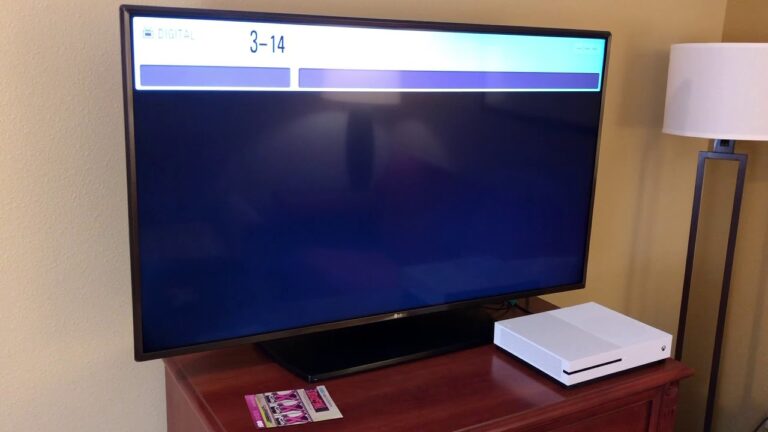When Does a Hotel Guest Become a Tenant in Florida

A hotel guest becomes a tenant in Florida when their residency becomes permanent, usually when they have no other place to live. Certain factors, like using the hotel’s address for mail, may play a role.
The distinction can also hinge on whether the guest receives government-issued identification at the hotel. In Florida, the transition from hotel guest to tenant can be a complex matter. Understanding the circumstances that define a guest as a tenant is essential for both hotel owners and guests.
Under Florida law, there is no legal requirement for residential tenancies to be in writing, making it crucial to have a clear understanding of the rights and responsibilities of both parties involved in the arrangement. Let’s delve further into the intricacies and legal implications of the hotel guest-tenant relationship in Florida.
Navigate Where You Want:
- Defining Guest Vs. Tenant Status
- Tenant Rights And Obligations
- Hotelier’s Responsibilities And Actions
- Indicators Of Tenancy Establishment
- Transition From Guest To Tenant
- Preventive Measures For Hotels
- Frequently Asked Questions On When Does A Hotel Guest Become A Tenant In Florida
- How Long Can A Guest Stay Before Being Considered A Tenant In Florida?
- Can You Establish Residency At A Hotel In Florida?
- Can You Be Evicted From A Hotel In Florida?
- What Constitutes A Tenant In Florida?
- Conclusion
Defining Guest Vs. Tenant Status
Generally, if a hotel resident doesn’t have anywhere else to live, they qualify as a tenant under Florida law. Other factors may weigh in, such as whether the resident uses the hotel’s address to receive mail, or on a form of government-issued identification. In Florida, there is no legal requirement that residential tenancies be in writing. The hotel must serve on the guest a three-day notice to pay rent or vacate, identifying the deadline by which the guest must either eliminate. Hotel owners in Florida have the right to evict guests under certain circumstances, including non-payment of fees, violation of hotel policies, or engaging in illegal activities on the premises.

Credit: www.proper.insure
Tenant Rights And Obligations
Under Florida law, a hotel resident can become a tenant if they have no other place to live, use the hotel’s address for mail or identification, or pay rent to live there. Lease agreements and tenancy requirements are not required to be in writing, leaving room for anyone in the residence to become a tenant, irrespective of lease agreement details. Once tenant status is established, residents gain certain rights, including protection from unjust eviction. Hotel owners can evict guests for non-payment, policy violations, or illegal activities, provided they adhere to eviction procedures.
In conclusion, the distinction between hotel guest and tenant in Florida hinges on residency factors, which can grant a hotel resident the rights and protections of a tenant, even without a written lease agreement.
Hotelier’s Responsibilities And Actions
Generally, if a hotel resident doesn’t have anywhere else to live, they qualify as a tenant under Florida law. Other factors may weigh in, such as whether the resident uses the hotel’s address to receive mail, or on a form of government-issued identification.
The hotel must serve on the guest a three-day notice to pay rent or vacate, identifying the deadline by which the guest must either eliminate the noncompliance or vacate the premises. Eviction procedures for noncompliant occupants can be initiated if the guest does not comply with the notice.
Indicators Of Tenancy Establishment
In Florida, a hotel guest may transition into a tenant under certain circumstances. If the guest uses the hotel’s address for personal mail or has identification documents reflecting the hotel address, this can indicate a more permanent residence. Additionally, exclusive occupancy and a lack of alternative residence can contribute to the establishment of tenancy. According to Florida law, regardless of whether their name appears on the lease, any person paying rent to live in the residence may be considered a tenant. Hotel owners in Florida have the right to evict guests under specific circumstances, such as non-payment of fees, violation of hotel policies, or engaging in illegal activities on the premises.
Transition From Guest To Tenant
Generally, if a hotel resident doesn’t have anywhere else to live, they qualify as a tenant under Florida law. Other factors may weigh in, such as whether the resident uses the hotel’s address to receive mail, or on a form of government-issued identification. In actuality, any other person paying rent to live in the residence can become a tenant regardless of whether their name appears on the lease. In Florida, there is no legal requirement that residential tenancies be in writing. Hotel owners in Florida have the right to evict guests under certain circumstances. Common reasons for eviction may include non-payment of fees, violation of hotel policies, or engaging in illegal activities on the premises.
Preventive Measures For Hotels
Generally, if a hotel resident doesn’t have anywhere else to live, they qualify as a tenant under Florida law. Other factors may weigh in, such as whether the resident uses the hotel’s address to receive mail, or on a form of government-issued identification. The hotel must serve on the guest a three-day notice to pay rent or vacate, identifying the deadline by which the guest must either eliminate or vacate the premises. In actuality, any other person paying rent to live in the residence can become a tenant, regardless of whether their name appears on the lease. Hotel owners in Florida have the right to evict guests under certain circumstances, including non-payment of fees, violation of hotel policies, or engaging in illegal activities on the premises.
Frequently Asked Questions On When Does A Hotel Guest Become A Tenant In Florida
How Long Can A Guest Stay Before Being Considered A Tenant In Florida?
In Florida, a hotel guest may be considered a tenant if they have no other residence and meet certain criteria like using the hotel’s address for mail or identification.
Can You Establish Residency At A Hotel In Florida?
Yes, you can establish residency at a hotel in Florida under certain circumstances, such as not having another permanent residence.
Can You Be Evicted From A Hotel In Florida?
Yes, hotel guests can be evicted in Florida for non-payment, policy violations, or illegal activities.
What Constitutes A Tenant In Florida?
A hotel resident becomes a tenant in Florida if they don’t have another place to live. The hotel address for mail or government ID can also affect their status. The hotel can evict guests for non-payment or policy violations.
Conclusion
In Florida, a hotel resident may become a tenant if they lack alternative housing. Factors like using the hotel address for mail or identification may also be considered. Understanding these distinctions can ensure both guests and hotel owners know their rights and responsibilities.
Related Articles To Read:
- Do Hotels Have Cameras in Hallways
- How Long Does a Hotel Deposit Refund Take? (How to Avoid That)
- What Do Hotels Use for Scent
- What Does Yankee Hotel Foxtrot Mean
- What is a Hotel Wet Bar?
- When Does a Hotel Guest Become a Tenant in California
- Where Do Hotels Buy Their Furniture
- Are Emotional Support Animals Allowed in Hotels?
- Are Hotel Deposits Refundable?
- Are Hotel Rooms Soundproof?





